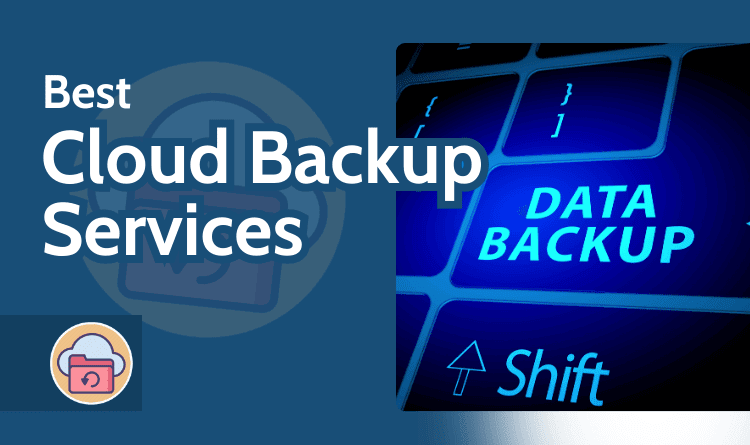Cloud Backup Services in 2025: The Ultimate Guide to Secure Your Data
In today’s digital-first world, data is more valuable than ever. From personal memories like family photos to mission-critical business documents, protecting your data is essential. Cloud backup services have evolved dramatically over the last decade, and in 2025, they are no longer optional they are a necessity. With rising cyber threats, ransomware attacks, and the increasing need for remote accessibility, cloud backup has become the most secure and reliable method of safeguarding information.This guide will explore everything you need to know about cloud backup services in 2025, including how they work, the latest trends, features to look for, and the best providers available. Whether you are an individual, a small business, or a large enterprise, this article will help you make informed decisions about securing your data in the cloud.
What is Cloud Backup?
Cloud backup, also known as online backup, refers to storing copies of your data on remote servers operated by a third-party provider. Instead of relying solely on local storage such as hard drives or external devices, cloud backup ensures that your files are safely stored in secure, redundant data centers accessible through the internet.
Key Benefits:
-
Automatic protection: No need for manual backups.
-
Accessibility: Access files anytime, anywhere.
-
Security: Encrypted storage with advanced cyber defense.
-
Scalability: Easily increase storage as data grows.
-
Disaster recovery: Quick data restoration after system failures or cyberattacks.
Why Cloud Backup is Essential in 2025
-
Ransomware Protection – Cyberattacks are becoming more sophisticated. Cloud backups provide immutable storage that prevents data tampering.
-
Remote Work – With hybrid and remote work models continuing, employees need seamless access to data across locations.
-
Regulatory Compliance – Businesses must meet strict data privacy regulations like GDPR, HIPAA, and CCPA, which cloud providers support with compliance-ready systems.
-
Scalable Solutions – The exponential growth of data demands flexible backup solutions that local storage alone cannot handle.
-
AI Integration – AI-driven backup solutions in 2025 detect anomalies, optimize storage, and predict failures before they occur.
Latest Trends in Cloud Backup (2025)
-
AI-Powered Data Protection
-
Predictive analytics to identify risks before data loss occurs.
-
Smart deduplication to reduce storage costs.
-
-
Zero Trust Security Models
-
Continuous verification of access requests.
-
Multi-layered encryption across devices and networks.
-
-
Hybrid Cloud Backups
-
Combining private and public cloud infrastructure for flexibility.
-
Ideal for enterprises with complex workloads.
-
-
Blockchain-Based Backup
-
Transparent, tamper-proof data records.
-
Increased trust in audit trails and compliance checks.
-
-
Green Cloud Storage
-
Energy-efficient data centers reducing carbon footprint.
-
Providers offering eco-friendly cloud backup options.
-
How Cloud Backup Works
-
Data Selection: Choose files, folders, or entire systems to back up.
-
Encryption: Data is encrypted locally before leaving your device.
-
Transfer: Securely sent over the internet using SSL/TLS protocols.
-
Storage: Stored in secure data centers with redundancy.
-
Access & Recovery: Data can be restored instantly on demand.
Features to Look for in Cloud Backup Services (2025)
-
End-to-End Encryption (E2EE) – Ensures only you can access your files.
-
Automated Scheduling – Backups happen in real-time or at chosen intervals.
-
Cross-Platform Support – Windows, macOS, Linux, iOS, and Android compatibility.
-
Disaster Recovery Options – Fast system restore in case of hardware or ransomware attack.
-
Unlimited Versioning – Access previous versions of files.
-
Scalability – Storage grows with your needs.
-
24/7 Support – Critical for businesses requiring uptime.
Cloud Backup vs Traditional Backup
| Feature | Cloud Backup | Traditional Backup |
|---|---|---|
| Accessibility | Global | Local only |
| Security | Encrypted, multi-layered | Vulnerable to theft or damage |
| Scalability | Unlimited | Limited to hardware |
| Cost | Subscription-based | One-time hardware purchase |
| Disaster Recovery | Fast & remote | Time-consuming, often incomplete |
Best Cloud Backup Services in 2025
1. Acronis Cyber Protect Cloud
-
AI-driven ransomware protection.
-
Integrated cybersecurity features.
-
Ideal for businesses with complex workloads.
2. Backblaze
-
Affordable unlimited storage.
-
Easy-to-use interface.
-
Great for individuals and small businesses.
3. iDrive
-
Hybrid backup (local + cloud).
-
Multi-device support with one account.
-
Affordable for startups and families.
4. Carbonite Safe
-
Designed for SMBs.
-
Automatic cloud and hybrid backups.
-
Excellent disaster recovery features.

5. Google Drive & Microsoft OneDrive (Enhanced in 2025)
-
Integrated with productivity tools.
-
AI-powered search and file management.
-
Strong encryption and accessibility.
Cloud Backup for Different Users
For Individuals:
-
Protect photos, videos, and personal documents.
-
Mobile-friendly apps for on-the-go backup.
For Small Businesses:
-
Affordable solutions with compliance features.
-
Data sharing with secure team collaboration.
For Enterprises:
-
Scalable hybrid solutions.
-
AI and machine learning for predictive monitoring.
-
Compliance with global regulations.
Challenges in Cloud Backup
-
Internet Dependency: Requires strong and reliable internet connection.
-
Cost Over Time: Subscription models may be expensive for large data volumes.
-
Vendor Lock-In: Difficult to switch providers.
-
Privacy Concerns: Users must trust providers with sensitive data.
Future of Cloud Backup Beyond 2025
-
Quantum Encryption: Unhackable data security with quantum key distribution.
-
Edge Computing Integration: Faster backups closer to where data is generated.
-
More Decentralized Solutions: Peer-to-peer cloud backup systems.
-
100% Automated Backups: AI managing every aspect of backup and recovery.
Conclusion
In 2025, cloud backup services are no longer a luxury—they are a vital part of digital security and resilience. With advanced features like AI-driven protection, zero-trust models, and eco-friendly infrastructure, cloud backup has adapted to meet the modern world’s challenges. Whether you’re an individual safeguarding memories or a business protecting critical operations, investing in the right cloud backup solution ensures your data is always safe, accessible, and recoverable.Your data is your most valuable digital asset—make sure you keep it protected with the right cloud backup service.
Frequently Asked Questions (FAQ)
1. What is the main purpose of cloud backup?
Cloud backup ensures your data is securely stored on remote servers, protecting it from loss due to device failure, cyberattacks, or accidental deletion.
2. Is cloud backup better than an external hard drive?
Yes, in most cases. While external hard drives are good for offline storage, they are vulnerable to damage, theft, and hardware failure. Cloud backup offers secure, encrypted, and redundant storage accessible from anywhere.
3. Are cloud backups safe from hackers?
Reputable providers use end-to-end encryption, zero-trust security models, and AI monitoring to safeguard data. However, users must also follow good practices like enabling multi-factor authentication (MFA).
4. How much does cloud backup cost in 2025?
Pricing varies depending on provider and storage size. Individual plans start around $5–10/month, while business plans can range from $50–200/month or more, depending on features.
5. Can I access my cloud backup without the internet?
No, you need an internet connection to upload or restore data. However, some services offer hybrid backup (local + cloud), allowing offline access as well.
6. What happens if my cloud provider shuts down?
Top providers usually guarantee service continuity or provide migration tools. It’s recommended to keep a secondary backup (local or hybrid) to avoid vendor lock-in risks.
7. Which cloud backup service is the most secure in 2025?
Services like Acronis Cyber Protect Cloud, iDrive, and Backblaze are leading in terms of security, offering zero-trust encryption, AI-driven threat detection, and compliance with global regulations.
8. Do cloud backup services support mobile devices?
Yes. Most providers offer apps for iOS and Android, allowing you to back up contacts, photos, and files directly from smartphones and tablets.
9. Can cloud backup help against ransomware?
Absolutely. Many services offer immutable storage, meaning once your files are backed up, they cannot be altered or deleted by ransomware attacks.
10. How do I choose the best cloud backup service in 2025?
Consider factors like:
-
Security & encryption levels.
-
Pricing and storage capacity.
-
Speed of backups and recovery.
-
Cross-device support.
-
Customer support and reliability.




